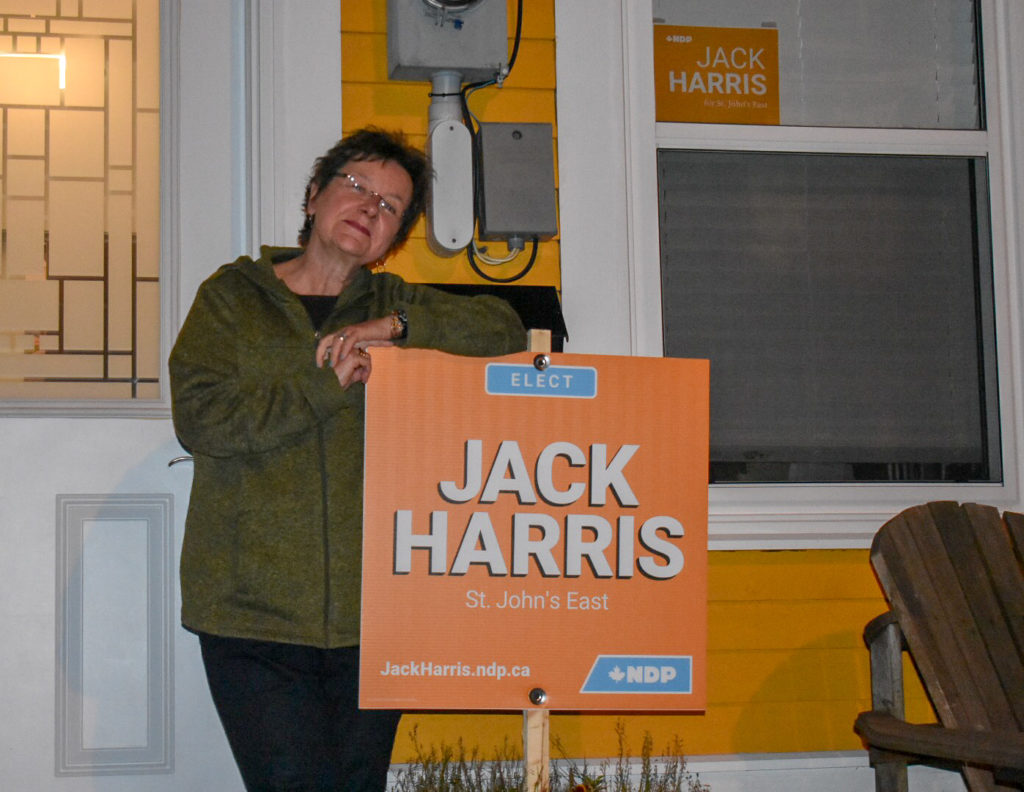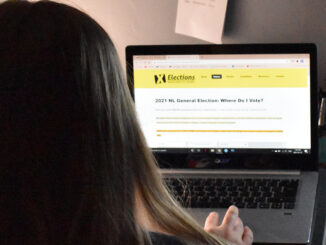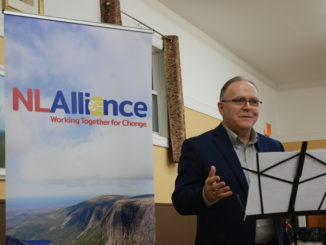It’s election season in Canada, and it’s set to be nastier and more personality-driven than any before.
Nick Travis
Kicker

Jasmine Burt/Kicker
From Prime Minister Trudeau’s “brown face” incident, to the recent story of Conservative leader Andrew Scheer’s padded resume — scandals seem to be the focus of Canada’s 43rd election.
Some Canadians are wondering if the mud-slinging tactics is the new normal for Canada.
Pat O’Toole teaches political science at College of the North Atlantic.
“ I think people would rather see politicians focus on the issues than probably dig up, say, one incident in a person’s life that may have been a bad decision.”
Former NDP MHA Gerry Rogers doesn’t think people really buy into the attack ads.
“I don’t think people are interested in the mud slinging. They really aren’t,” said Rogers. “People are not that stupid, and politics isn’t a sport. For some people, the issues we deal with are life and death issues.”
O’Toole says attack politics have been the norm for the last few election cycles. However, he thinks this year has ramped things up again.
“I think it started when Stephen Harper was initially looking for election,” said O’Toole. “This sort of waned a little bit in recent years, but they seem to have resurfaced with Andrew Scheer. That party in particular seems to be more dominant in attack ads.”

O’Toole thinks that the major parties are using fear as a way of controlling the election dialogue.
“I think fear is a big issue that politicians try to focus on, and try to disparage their opposition,” said O’Toole.
The attack style of politics, he says, will get worse long before it gets better.
“It seems that a lot of things that people read in social media and on those different venues, that they take it at face value before investigating the issue,” said O’Toole. “Unfortunately it’s probably going to continue for the foreseeable future. I don’t see it changing much because of that situation.”
Rogers is slightly more optimistic about the recent trend. She thinks that in the future, parties might realize they have to co-operate for the common good. She also says that electoral reform would drastically change Canada’s political discourse for the better. According to her, it would help parties co-operate.
“I think part of it is because of our basic electoral system, because we use first past the post,” said Rogers.
First-past-the-post, or plurality voting, means that the candidate with the most votes wins. There is no proportional representation.
“Which means you don’t have to collaborate. When you look at what happens in our house of Parliament, we see… It’s not real debate, it’s not getting real work done. It’s partisanship, one-upmanship,
“And I don’t think that’s what people want, I know it’s not what people want.”




Be the first to comment